On October 24–26, 2021, the ASEAN-China High-Level Forum on Green and Sustainable Development and ASEAN-China Environmental Cooperation Forum 2021 were successfully held in Nanning, Guangxi through a combination of online and offline modes, as one of the series activities of 2021 ASEAN-China Year of Sustainable Development Cooperation. The Forum was sponsored by the Ministry of Ecology and Environment of China and the People’s Government of Guangxi Zhuang Autonomous Region, hosted by the Foreign Environmental Cooperation Center (FECO) of MEE and the Department of Ecology and Environment of Guangxi Zhuang Autonomous Region, and co-hosted by the ASEAN Secretariat.
Zhao Yingmin, Vice Minister of Ecology and Environment of China, Lim Jock Hoi, Secretary-General of ASEAN, Deng Xijun, Chinese Ambassador to ASEAN, Phouvong Luangxaysana, Vice Minister of Natural Resources and Environment of Laos, and Mr. Luo Zhanghua, Deputy Secretary General of the People’s Government of Guangxi Zhuang Autonomous Region, attended the Forum and delivered remarks. Zhou Guomei, Director General of Department of International Cooperation of Ministry of Ecology and Environment of China moderated the opening ceremony, and Li Yonghong, Deputy Director General of FECO, moderated the high-level dialogue session and made a closing remark.
Zhao Yingmin stated that the theme of the 2021 Year of Sustainable Development Cooperation reflects the importance that China and ASEAN attach to environmental cooperation, the year 2021 also marks the 30th anniversary of the ASEAN-China Dialogue Relations. With the inauguration of the China-ASEAN Environmental Cooperation Center, the two sides have formulated and implemented environmental cooperation strategies and action plans, and deepened cooperation consensus and conducted flagship program such as the Green Envoys Program and the ASEAN-China Partnership for Eco-Friendly Urban Development, which effectively improve the cooperation. In the future, China and ASEAN will implement the Framework of China-ASEAN Environmental Cooperation Strategy and Action Plan (2021–2025) through policy dialogue, capacity building, joint research, and pilot project, and step-up practical cooperation and coordinated actions on issues such as biodiversity conservation, climate change, air quality, sustainable cities, and marine plastics reduction.
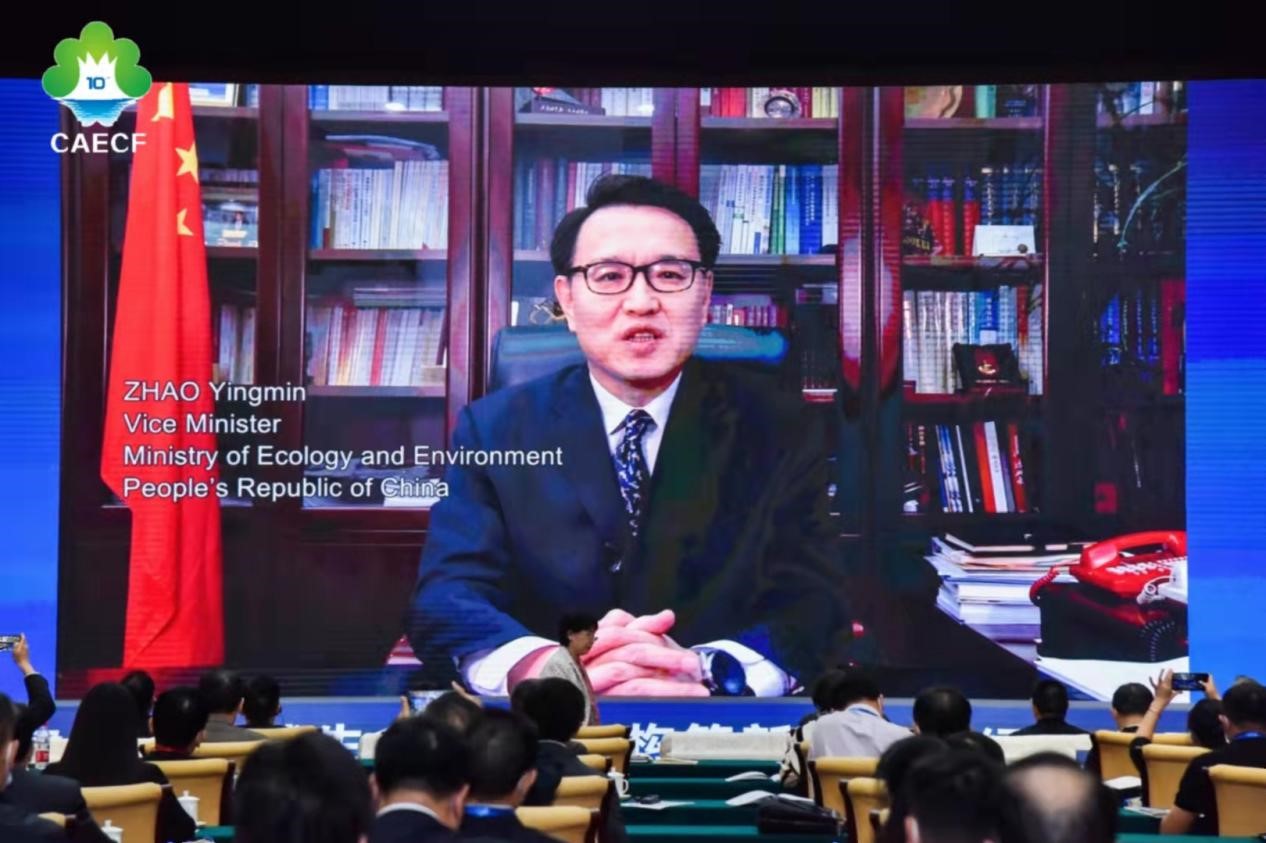
Lim Jock Hoi applauded the progress and effectiveness of cooperation in environment and other fields over the 30 years since China and ASEAN established the Dialogue Relations. ASEAN and China are important partners in environmental protection and sustainable development will continue exchanges and cooperation in the field of climate change and mangrove conservation, and further leverage the creativity and engagement of youth representatives to explore youth programs for protecting the ecological environment.
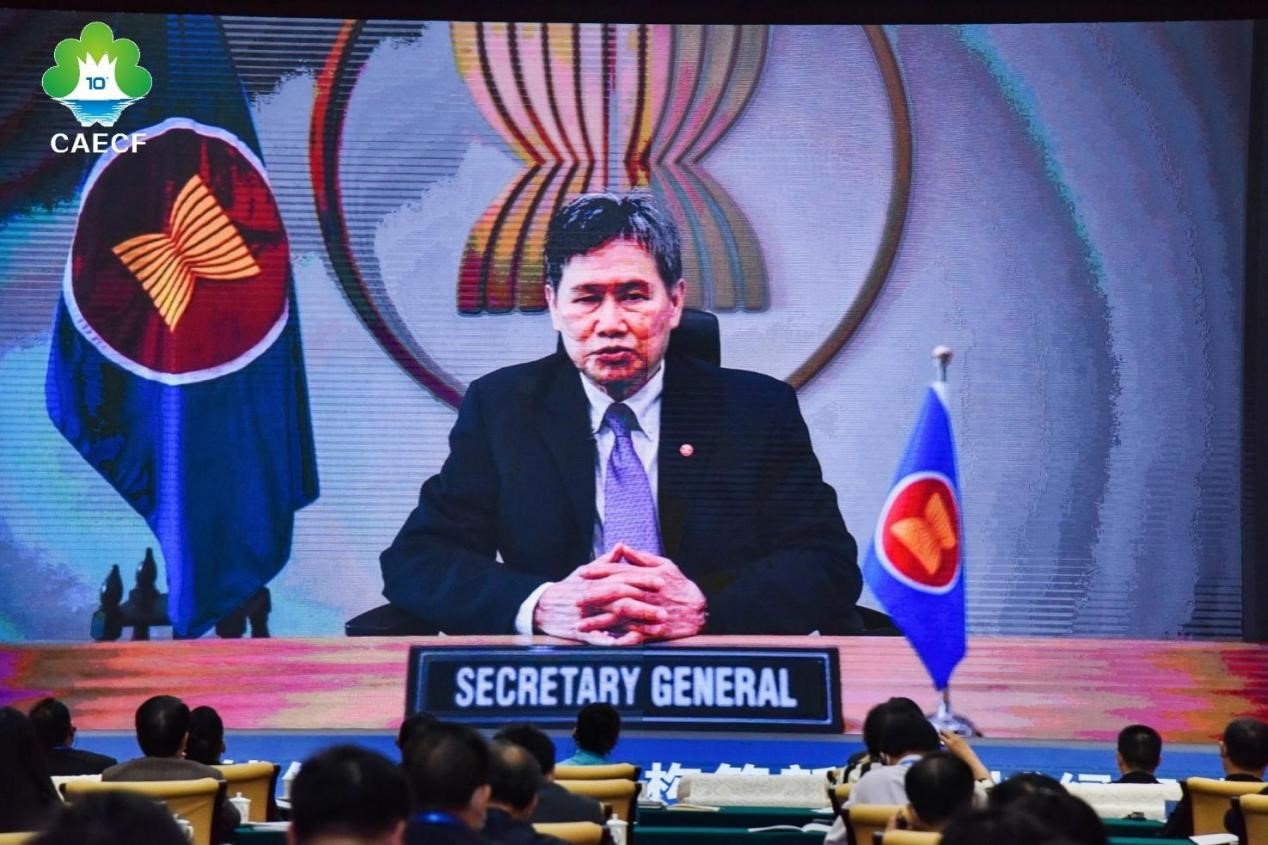
Phouvong LUANGXAYSANA congratulated on the successful holding of ASEAN-China High-level Forum on Green and Sustainable Development & ASEAN-China Environmental Cooperation Forum 2021. Great achievements have been made in environmental and sustainable development under the guidance of ASEAN-China Environmental Cooperation Strategy. The two sides will take the opportunity of the forum to enhance cooperation and make greater contribution to sustainable development in the region.
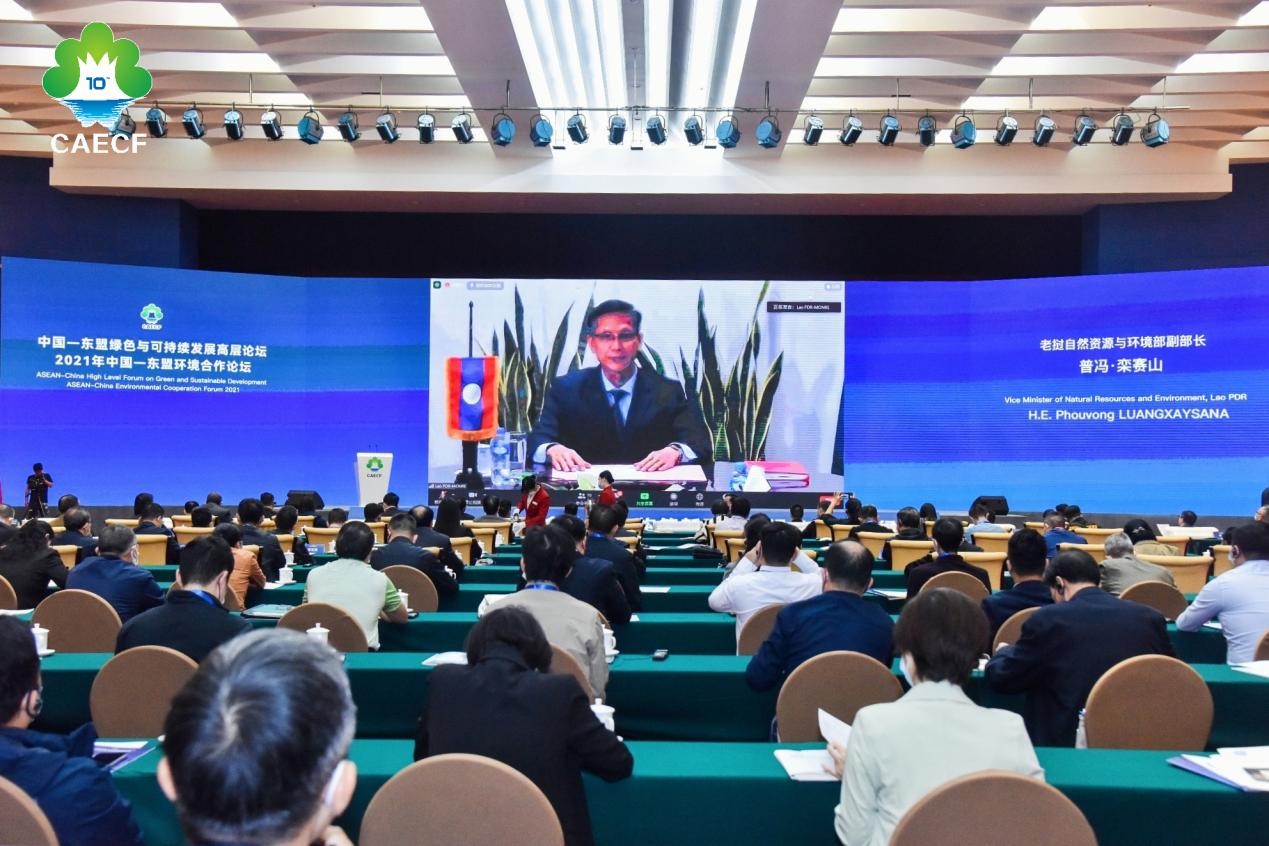
Deng Xijun upheld that realizing sustainable and resilient development is the common goal of China and ASEAN member states and a priority area for China-ASEAN cooperation. Under the theme of sustainable development, the two sides have been promoting exchange and cooperation in areas such as environmental protection, climate change, biodiversity and disaster prevention and reduction with constant efforts in improving cooperation mechanisms and exploring for new cooperation opportunities, making green development a consensus and effectively promoting the upgrade of China-ASEAN strategic partnership. The two sides should take the 30th anniversary as a milestone and further enhance coordination and fully unleash the potential of cooperation with the principles of open, inclusive and mutually beneficial, win-win cooperation on an equal basis, so as to allow the outcomes of development to benefit local people.
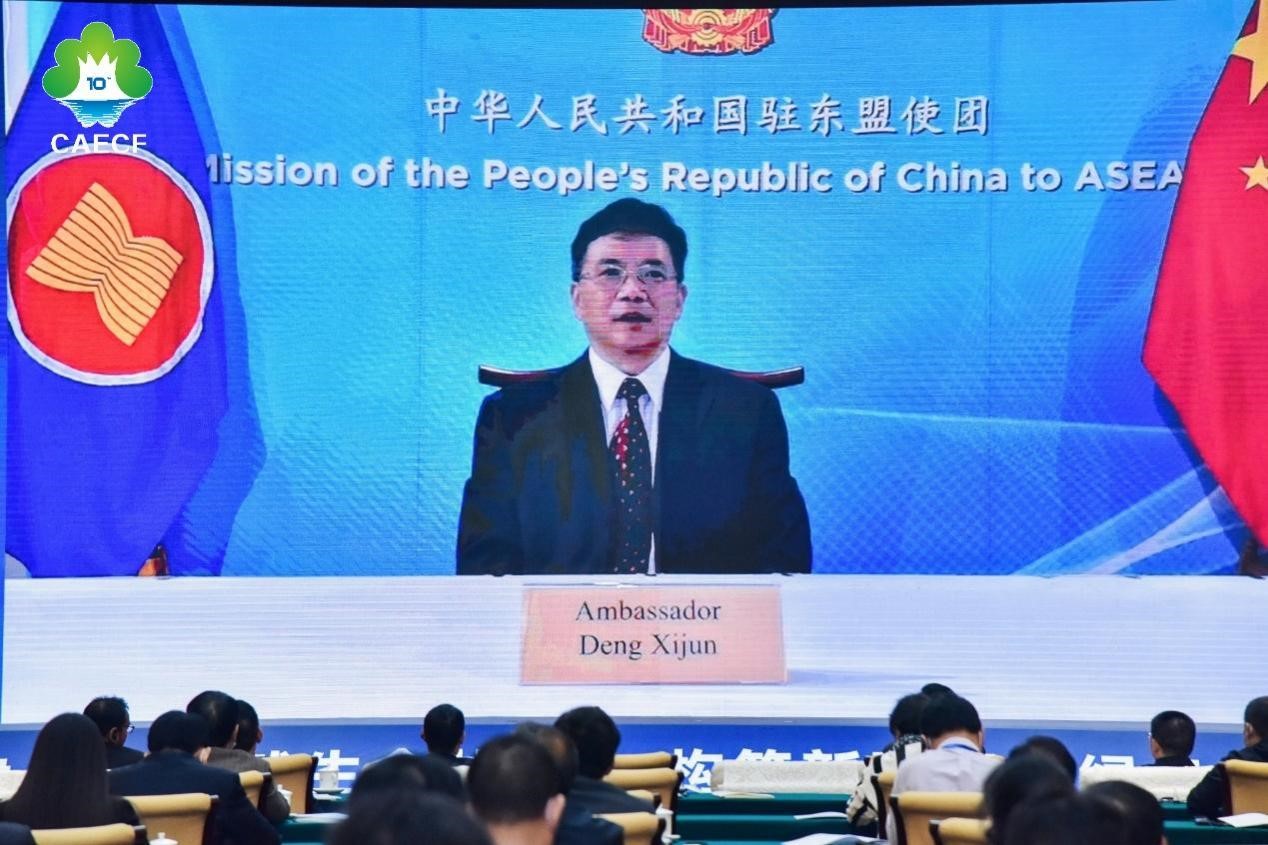
Luo Zhanghua said that Guangxi is at the frontier of ASEAN-China cooperation with great potential in green and sustainable development cooperation with ASEAN member states. In the future, Guangxi will enhance cooperation with ASEAN member states in addressing climate change, mangrove conservation and biodiversity, further strengthen communication and cooperation in ecology and environment, and jointly make greater contribution to promoting regional sustainable development and building a closer ASEAN-China community with a shared future.
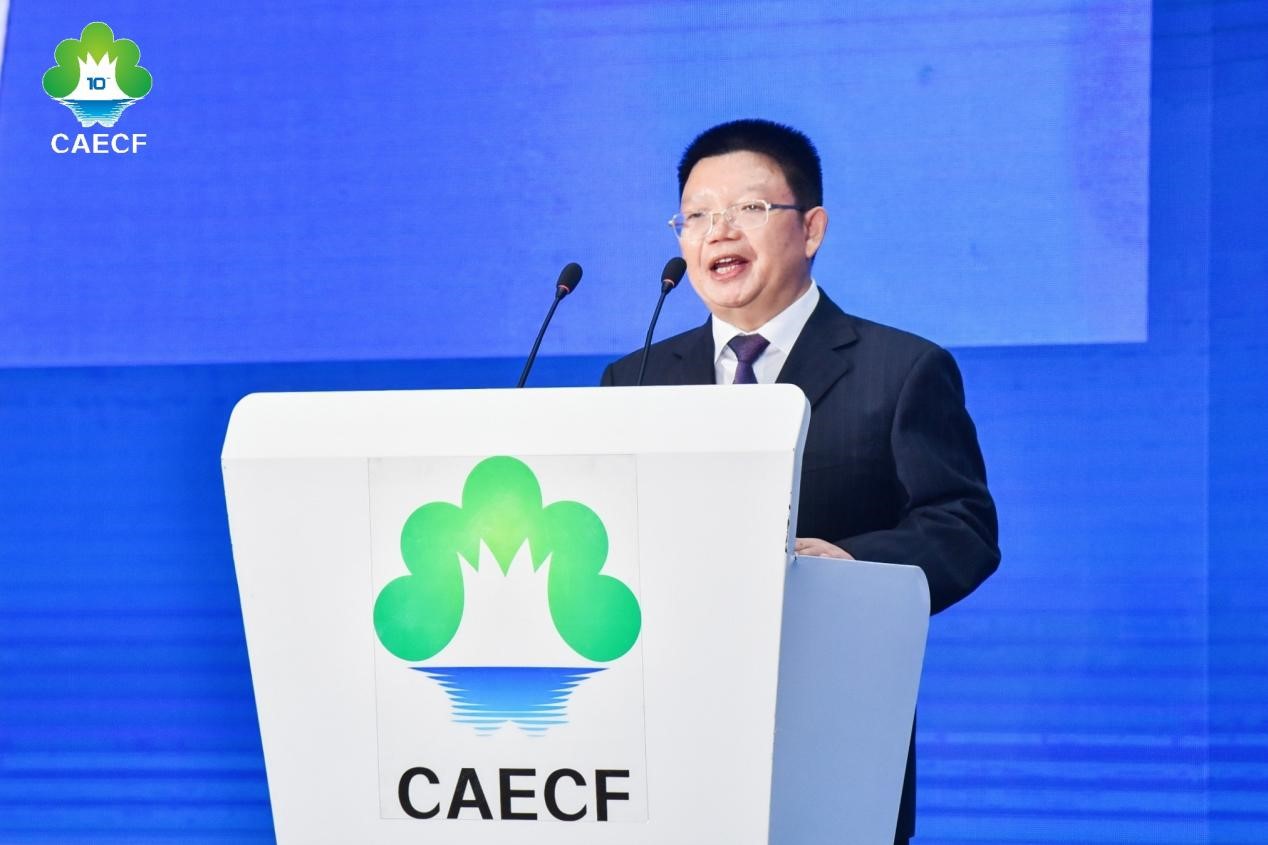
Representatives from the Ministry of Sustainability and the Environment of Singapore, the Ministry of Natural Resources and Environmental Conservation of Myanmar, the United Nations Environment Programme, World Wide Fund for Nature China, Stockholm Environment Institute Asia, and Chinese Academy of Sciences conducted high-level dialogues on "Advancing a New Process of Biodiversity Governance and Fueling Sustainable Development" and "Jointly Tackling Climate Change and Promoting Green Development", shared insights on biodiversity conservation and climate change response, and contributed regional green and sustainable development schemes to address global and regional hot environmental issues.
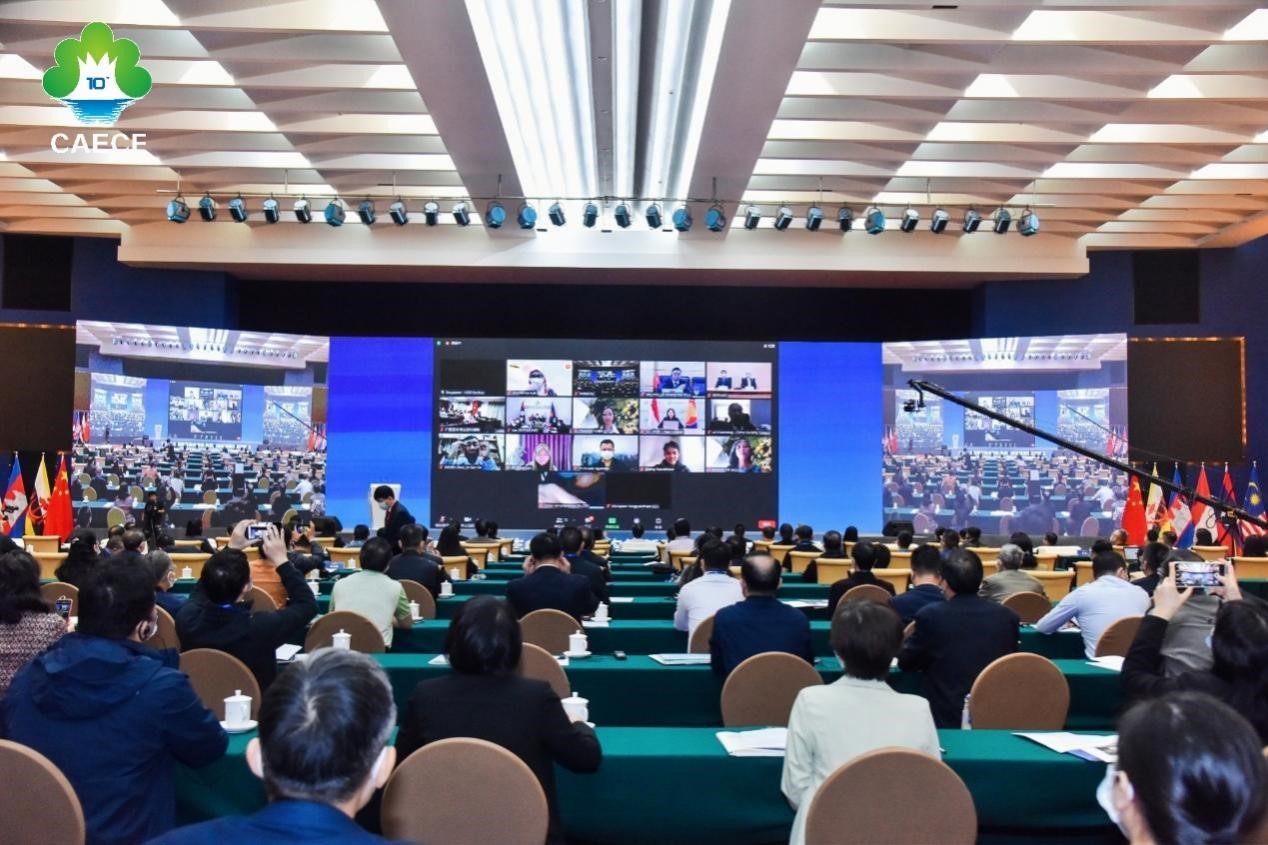
The forum consisted of four sub-forums, including ASEAN-China Roundtable Dialogue on Climate Investment and Finance: Climate Resilience & Green and Low-Carbon Development; Nature-based Solutions: ASEAN-China Mangrove Conservation Cooperation Partnership and Sustainable Development Practice; ASEAN-China Youth Leadership: Model Environmental Ministers’ Dialogue and Asian-African Youth Dialogue: From COP15 to COP26-Collaboration between Biodiversity and Climate Change; ASEAN-China Environmental Technology Cooperation and Innovation. Discussions were carried out on low-carbon and sustainable development practice; dialogue on resilient urban investment and finance: coordinated action to address climate change and improve air quality; and ASEAN-China good practices for mangrove ecosystem conservation, with a view to forging regional consensus and solutions.